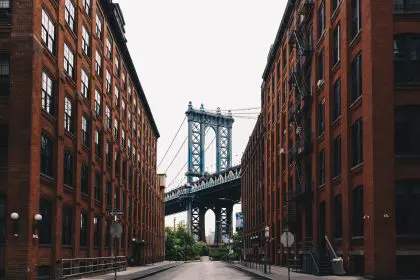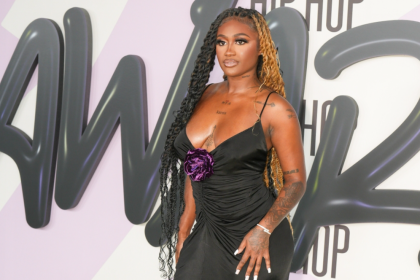 On Jan. 19, hip-hop will gather at the Hip-Hop Action Network’s Hip-Hop Inaugural Ball in Washington, D.C. to celebrate not only Barack Obama’s historic election but to pay homage to the culture that helped to get him in the White House.
On Jan. 19, hip-hop will gather at the Hip-Hop Action Network’s Hip-Hop Inaugural Ball in Washington, D.C. to celebrate not only Barack Obama’s historic election but to pay homage to the culture that helped to get him in the White House.
Specifically highlighting the contributions of LL Cool J, MC Lyte, T.I., Young Jeezy and Bow Wow, Dr. Benjamin Chavis, co-founder of HSAN and hip-hop commentator, is proud of the efforts that not only artists made but those that consider themselves to be a part of the hip-hop generation. As he jokingly declares, “we’re going to see artists come in baggy tuxes!” ro caught up with Dr. Chavis as he expounded on the inauguration, what Obama should be focused on once in office and the future of hip-hop culture in politics.-jacinta howard
How much does Barack Obama owe hip-hop artists and fans for his nomination?
The truth is we’re going to witness a historical inauguration on Jan. 20 as a direct result of the hard work that happened on Nov. 4 when we had the largest youth voter turnout in American history. Hip-hop culture played a major role in the mobilization of that voting effort, especially young adults who voted for the first time. For example, the data came in that showed that Obama won North Carolina. That is in direct proportion to the youth voter turn out (and) the same thing in Florida. I think it’s a question of recognizing and acknowledging the value and power of the hip-hop vote that contributed significantly to Obama. On the eve of his inauguration, hip-hop artists from all over the country are all going to be assembled, and we’re going to have a great hip-hop celebration. We’re going to pay particular tribute to T.I., Young Jeezy, LL Cool J, MC Lyte and Bow Wow for their specific role in helping.
How significant is it that T.I. and Young Jeezy both voted for the first time, and how did that translate for young people?
It’s very significant. I think millions of young people voted for the first time, and it showed hip-hop’s leadership quality. A lot of young people saw T.I. and Jeezy vote, and they saw the hurdles that T.I. was faced with in particular. He had to get a special hearing that allowed him to vote. It wasn’t like you had to drag people to the polls. Part of that enthusiasm is because of hip-hop artists’ involvement.
It’s interesting that the artists involved in the voting drives were not prototypical “conscious” artists…
I’m a hip-hop head myself. I’m an O.G. I recognize (that) there’s no such thing as an unconscious rapper. Some people are conscious about a strip club; others are conscious about a voting booth. I defend hip-hop because I think hip-hop has to be able to reflect the diversity of concerns that are in our community. And not all of our conversations are about things that are nice. For example, police brutality (and) poverty are some things that are broken. A lot of times when Public Enemy spoke out, people could relate to what they were saying. When I hear Young Jeezy or Lil Wayne, because you have to really listen to his lyrics, I can still make that connection. I feel reverberation of the contradictions of society, and Lil Wayne is calling attention to those contradictions when you really listen to what he was saying.
You just touched on it, but what are your thoughts on the police shootings that happened in Oakland, New Orleans and Houston?
Terrible. Police brutality is one of the things that young people are going to want to see addressed [during this term]. There’s going to have to be a coming to justice meeting after the inauguration to say “we’re not going to tolerate this any more.” We expect the president to use his pulpit, to use his mic to say “we’re going to cut your funding off if these incidents continue.” We need to re-open all of these cases of police brutality now. We have a new kind of man going to the White House. We have a brother being over the Justice Department. We’ve never had an African American attorney general.









